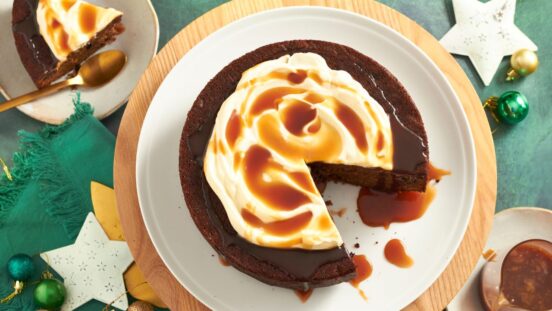Strengthening your pelvic floor muscles can help prevent sneeze-pee’s and laugh-wee’s in pregnancy and post-birth

One in two women over the age of 35 experience light bladder leakage in Australia.
When it comes to bladder leakage, mama you’re not alone. The female body goes through a million wonderful, crazy and mysterious changes during pregnancy and childbirth.
As your baby grows, it puts pressure on your bladder, so it’s those everyday activities, like sneezing, coughing, lifting, laughing, doing exercise which can trigger leakage for many women.
Women are more prone to light leakage than men as the female bladder muscle structure is also internalised and are affected by evens such as pregnancy, childbirth, hysterectomy, and menopause.
What causes you to sneeze-pee and laugh-wee
When you’re pregnant, your body undergoes incredible change. Most pregnant women experience bladder weakness in the third trimester, when the baby has grown so much they are pressed up against your bladder. This not only puts more pressure on it, but also reduces the amount of urine the bladder can hold, making you want to urinate more often. All the extra weight pressing down weakens the pelvic floor muscles and heightens the likelihood of leakage.
Incontinence problems can continue after the birth of your baby as a result of childbirth. According to the Continence Foundation of Australia, postpartum incontinence occurs because during childbirth, your baby moves through the birth canal and can stretch the nerves and pelvic floor muscles that keep the bladder shut. Often the muscles become over stretched and weak, and as a result, the bladder leaks. Additionally, there may also be specific things about the birth that can make a woman more likely to have bladder and bowel problems, such as a large baby, long labour, or difficult vaginal delivery including requiring an episiotomy.
Any incontinence experienced during pregnancy is more than likely stress incontinence (SI). The good news is that your pregnancy incontinence is likely to be temporary and is entirely treatable. One of the best ways to help regain bladder control – and your confidence – is to strengthen your pelvic floor (or Kegel) muscles.

Many pregnant women experience bladder weakness in the third trimester, when their baby is pressing against their bladder.
Finding your pelvic floor
Identifying your pelvic floor muscles can be difficult and it takes practice to find and squeeze your pelvic floor correctly. Whilst locating these muscles, refrain from using your stomach, buttock and leg muscles when trying the methods below.
Method 1: You can identify the muscles located around the bladder opening by starting and stopping your urine stream. If you are able to stop mid stream, you’re using your pelvic floor muscles.
Method 2: Another way to identify pelvic muscles and complete your pelvic floor exercises is to tighten the muscles around your back passage (as when holding back wind or at the end of a bowel movement).
Method 3: A proper pelvic floor squeeze also works to lift the engaged muscles upwards. Use a hand mirror to see if you can notice any upward movement when you contract your pelvic floor muscles.
And… squeeze!
Pelvic floor exercises, also known as Kegel exercises, can help control and in some cases, prevent incontinence entirely.
Best of all, they can be done anytime, anywhere, and without anyone noticing. Not only do they increase your control over your bladder, your pelvic floor supports your vagina, uterus and bowel, so keeping your pelvic floor in good working order is beneficial for women of all ages and stages of life.
To exercise your pelvic floor muscles:
– squeeze the muscles all around your front and back passage
– lift them up and inwards
– relax for about 5 seconds
– repeat up to 10 times
To watch a series of ‘how-to’ videos on pelvic floor exercises, click here.

One of the best ways to help regain bladder control – and your confidence to laugh and play with your toddler – is to strengthen your pelvic floor.
Seek treatment
Seeing a postpartum physio can help you to rehabilitate your body properly, especially your pelvic floor and abdominal muscles.
Pilates is another great way to strengthen your pelvic floor as these muscles need slow exercises as well as fast exercises.
You might be attending Pilates and regularly doing your pelvic floor exercises but chances are it’s going to take some time to get your bladder leakage under control.
In the meantime, there are products on the market designed specifically for women with urinary incontinence.
Find the product that’s right for you
Whether it’s light protection for a laugh-wee, something discreet to use during exercise, or something more absorbent for overnight use, Poise® has you covered with a range of discreet liners and pads specifically designed for LBL with superior 3-in-1 dryness, comfort and odour control which a period pad can’t provide!
Poise® Liners provide thin, discreet light bladder leakage (LBL) protection, perfect for when leakage occurs due to laughing, coughing, or sneezing. They are 4x drier than leading period liners and absorb up to 2x more than you may need*, so you remain confident, feminine and in control.
Poise® Pads provide discreet protection for when light bladder leakage (LBL) occurs due to triggers like exercise, jumping, bending or lifting, or for large amounts of liquid leakage (a half cup or more). They are 5x drier than leading period pads, and absorb up to 2x more than you may need*, so you remain protected and dry.
Poise® Pads are also available in a Thin & Discreet range, which is 45% thinner than the regular range of Poise® Pads, and are at least 3x drier than leading daytime ultrathin period pads. They also feature a unique Thin-Flex™ core which is designed to hold its shape all day without bunching, scrunching, twisting or curling. You’ll barely know they’re there!
To find out more, and discover the right product to use for your needs, visit www.poise.com.au/products/why-poise
*Based on US Consumer Use Testing

- Whether it’s light protection or something more absorbent for overnight use, Poise® has you covered with a range of discreet liners and pads.
Be kind to yourself
Your body has grown and birthed a baby, so be gentle with yourself. Your health and your recovery from pregnancy and childbirth is important so allow your body the time to heal.
Brought to you by POISE®.




